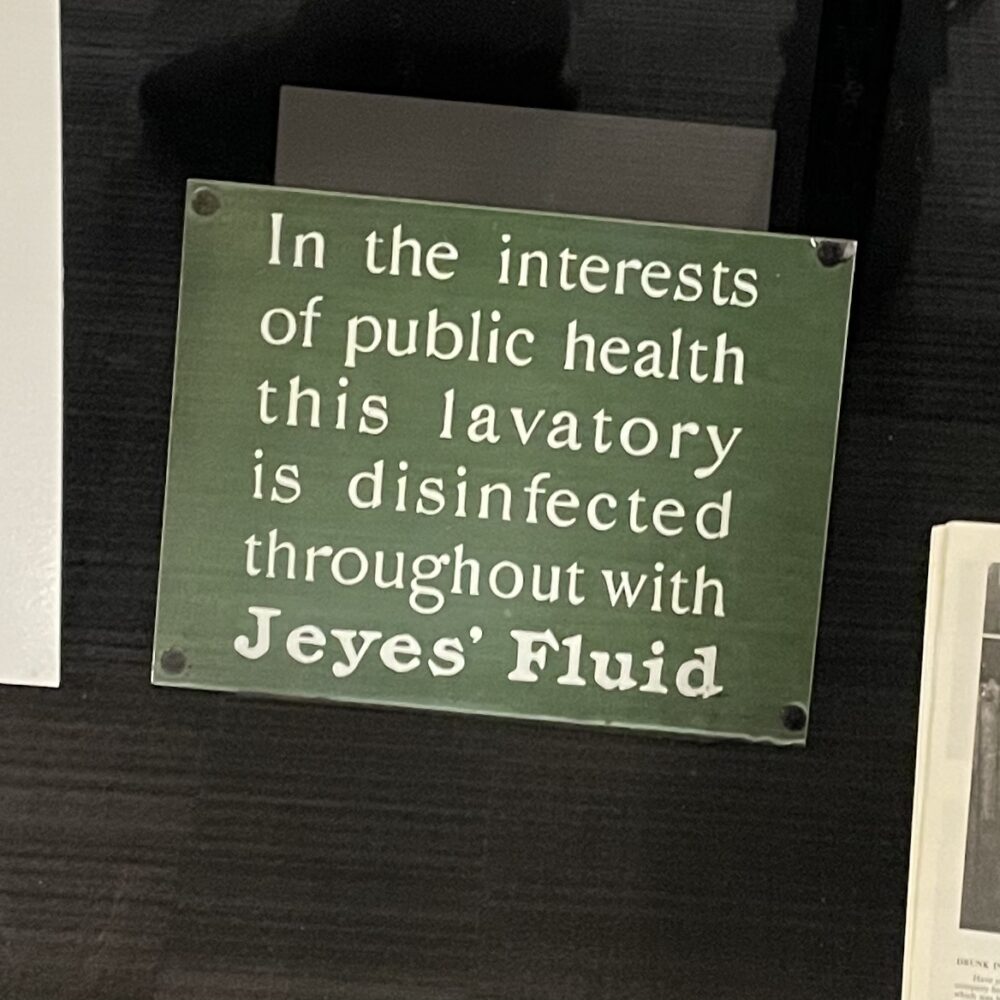I’ve been to see ‘The Rise & Decline of Newcastle’s Public Toilets’

The provision of public toilets has always been a rich seam for local journalism to tap: it seems to be one of those recurring topics that’s a surefire win for letters to local papers or calls to radio phone-ins. The seam of discontent has only grown richer as Conservative Chancellors have chosen to make cut upon cut to Local Authority funding, badly reducing the money available for non-statutory services. The resulting closure of public toilets has had upsetting consequences: disabled people and carers restricting the activities they undertake; further exclusion of the homeless; and more besides.
Here in Newcastle, we’re about to reach a decade since a lack of cash forced Newcastle Council to close its last remaining public toilets.
In a fabulously esoteric response, the City Library has worked with Newcastle University to mount an exhibition: ‘The Rise & Decline of Newcastle’s Public Toilets’. For those not able to make it to the Library (which has toilets, btw) there is an online exhibition with much of the same content.
The exhibition is very small, but a visit—even if only to the online version—is very worthwhile. I was previously ignorant of the historic gender issues associated with public toilet provision (historically, toilets for men were more prevalent than those for women). I learned for the first time the sparkling anecdote about as historic netty being re-built at Beamish Museum, but having to be closed because people assumed it to be a working facility rather than an exhibit. I had no idea that in the 1800s, the urine from public urinals was often collected for use in tanneries.
This is a wonderfully unusual small exhibition, which I’d thoroughly recommend.
‘The Rise & Decline of Newcastle’s Public Toilets’ continues at Newcastle City Library until 14 August. I’m not certain how long the online version runs for, but I hope it will be maintained for posterity.
This post was filed under: Post-a-day 2023, Newcastle City Library, Newcastle upon Tyne.